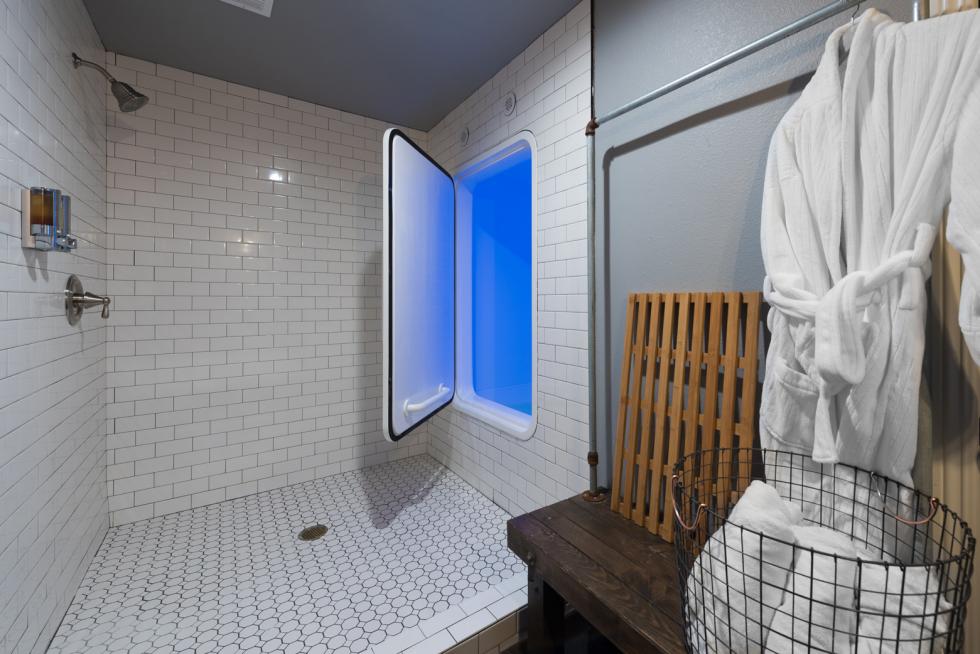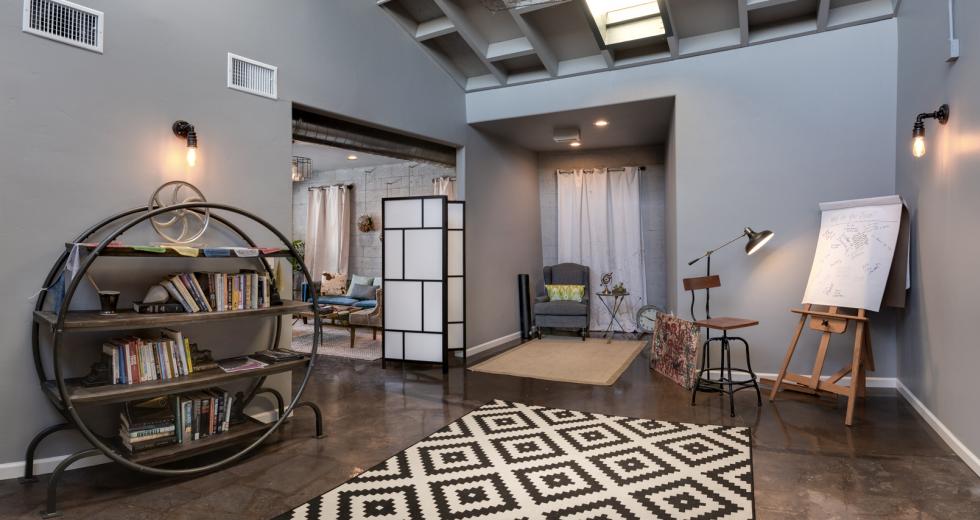Ryan Duey, owner-operator of Capitol Floats in Sacramento, describes the experience of floating as “turning the outside off, and turning you up to the nth degree. You’re the driver of the ship. Your float is whatever your float wants to be.”
Created by neuroscientists in the 1950s as a method for researching altered states of consciousness, floating is growing in popularity alongside wellness-focused practices like yoga or alternative medicine. Studies have shown that floating reduces blood pressure and stress hormone levels, and boasts physiological benefits for anxiety, headaches, insomnia and chronic pain.
Duey was introduced to floating following a near-death motorbike accident while traveling in Thailand in 2012. Once back in the U.S. to recover, and suffering from back and neck pain, he started floating at a center in San Francisco. Heading into his second session, he knew he was hooked. “I was sitting there with a huge smile on my face [thinking] this is just my happy place,” Duey says. “A thought came over [me], ‘then go create your own.’ It was a really pure thought.” Rocklin-raised Duey set his sights on Sacramento to join the city’s cultural renaissance. He quit his job in sales with the San Jose Earthquakes in November of 2014, moved to Oak Park and began searching for investors and a space to open up shop.
Capitol Floats
- Location: 3513 Broadway, Sacramento
- Hours: 3:30 – 10:00 p.m. Monday, 9:30 a.m. – 10 p.m. Tuesday – Friday, 8 a.m. – 10 p.m. Saturday and Sunday
- Info: (916) 739-1218, www.capitolfloats.com
Establishing the business wasn’t that simple. Duey was rejected by landlords in midtown, Curtis Park and East Sacramento, until one of his investors bought the building that now houses Capitol Floats and adjoining health-conscious eatery Vibe Health Bar. “My idea was too foreign,” Duey says. “[Landlords] didn’t buy into what I was putting forth. When all of Sacramento was saying no, Oak Park ended up presenting itself.”
Duey launched Capitol Floats in February; one of an estimated 250 float tank businesses across the country. But as his business makes a splash in Oak Park with a growing base of devotees, some worry that Capitol Floats — with a trendy concept and high-end price tag — is part of a larger current signaling the neighborhood’s gentrification.
The Practice of Floating
To float, clients enter a spacious tank (Capitol Floats’ tanks are 8-feet long, 5-feet wide and over 7-feet tall; most tanks are more similar to pods) filled with about 10 inches of water saturated with 1,100 pounds of Epsom salts. It’s extremely buoyant and heated to a balmy skin temperature, making floating effortless. The goal is to reduce the stimulus of daily life — noise, light, gravity — and allow the client to relax.
Local musician James Cavern is among Capitol Floats’ new devotees. He lauds the relaxing effects. “Everybody will get out what they put in,” he says. “Everybody has a different experience.” Cavern says he spends his floats stretching and doing vocal exercises. The benefits come after, when Cavern notices he is thoughtful, content, happy and more creative: “It just feels good — a post-float high.”
For Tammera Malicki-Wong, who suffers from neuro-immune dysfunction including fibromyalgia, she says floating twice a week supplements her medication and provides immediate relief for chronic pain and muscle spasms. “I went in to just try it out,” Malicki-Wong says. “I thought it was going to be a one-time deal. Then it turned into a two-time and a three-time and I bought a membership. The amount of temporary relief I get from it — it’s a blessing.”
Clients preach the benefits of floating on their physical and
mental well-being. (courtesy of Ryan Duey)

Not all clients are regulars, but those like Cavern and Malicki-Wong have made floating a practice. Duey likens it to yoga: “You can go into yoga and have aspirations to do a handstand or increase your flexibility. It’s going to take some time. We all have layers to ourselves so if you float more often, you peel back more layers, you go deeper into the relaxation.”
The price tag for floating is a little further north than your average yoga session, however. Coming in at $65 for a 60-minute session (with membership and package deals available), the cost of floating can be prohibitive. Duey says cost effectiveness was on his mind when launching the business, especially considering floaters in cities like San Francisco or New York pay closer to $100 a session. “We don’t want that feel that we’re this uber-prestigious spot,” he says.
Raising Eyebrows in Oak Park
The cost, coupled with the fact that floating still exists on the cultural periphery (Duey himself acknowledges it’s an out-there concept), brings up questions of both financial and cultural accessibility, especially given the location of the business in a historically working-class neighborhood.
Tamika L’Ecluse, president of the Oak Park Neighborhood Association, recognizes that Capitol Floats doesn’t necessarily serve the demographic of its immediate neighborhood. “For many people in our neighborhood, we can’t afford something so luxurious,” L’Ecluse says.
Capitol Floats is among the influx of on-trend businesses popping up in Oak Park’s Triangle District — the commercial corridor along Broadway — bringing a steady stream of new visitors to the neighborhood and, with it, conversations about gentrification.
Duey’s business is part of this critical mass, and he hopes to find ways to converse with, and give back to, the community. “We’re helping out local organizations that need items for raffles, donations and things like that,” Duey says, adding, “Our head isn’t in the sand. We’re listening. We’re trying to be a part of the community here. We want to be a part of the conversation about what is taking place.”
L’Ecluse has mixed reactions. On one hand, the Triangle District is breathing life into this part of Oak Park. “People are actually out of their houses and walking along Broadway,” she says. “You didn’t see that 10 years ago. That’s related to this renaissance. There are good things coming from it.”
On the other hand, L’Ecluse emphasizes the importance of thoughtfulness around which businesses open in the neighborhood, highlighting a need for affordable and culturally accessible establishments that residents can patronize. “I would love to be able to walk from my house and feed my family of four for less than $50.”
According to L’Ecluse, Oak Park residents express “a lot of fear” around the gentrification that’s occurred so far. “I just hope that we’re really cautious to make sure that we’re not losing the neighborhood.”



